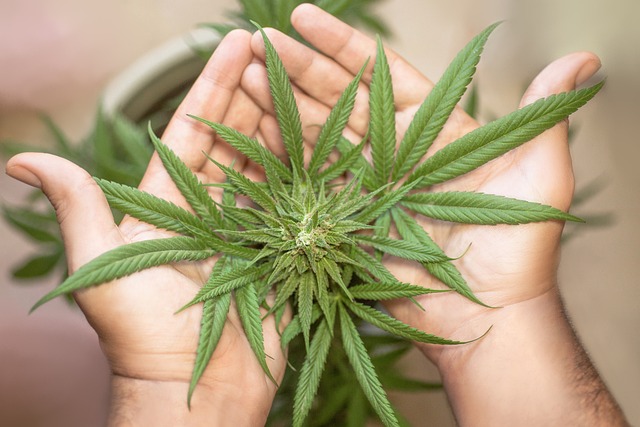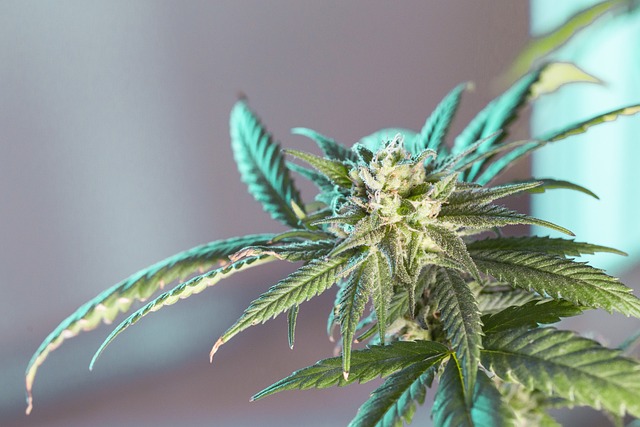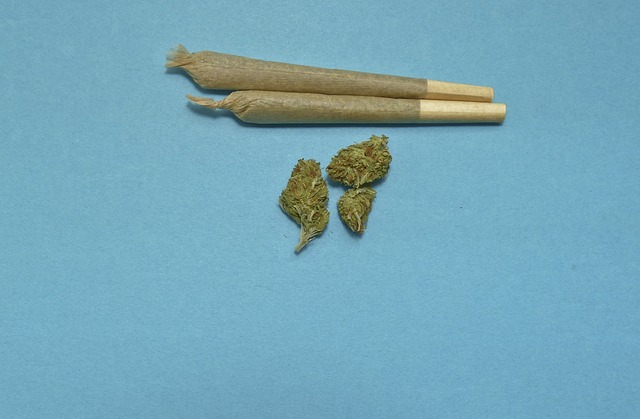2023 marked a significant year for cannabinoid research and regulation with Indacloud thca flower (Tetrahydrocannabinolic Acid), a non-psychoactive compound found in hemp, emerging as a key player due to its potential health benefits. In Pennsylvania, where the legal status of THCA is defined under state regulations, this cannabinoid has become particularly noteworthy. Unlike THC, THCA does not induce psychoactive effects and has been associated with anti-inflammatory, neuroprotective, and analgesic properties. Studies suggest it may offer relief from conditions like chronic pain and inflammation while also potentially regulating mood and providing stress relief. Pennsylvania's evolving hemp market has positioned THCA flower as a significant alternative within the cannabinoid space, with consumers advised to consult healthcare professionals before incorporating it into their health routines. As of the latest update, THCA is legal in Pennsylvania when derived from hemp under the 2018 Farm Bill and state regulations, provided it contains less than 0.3% THC. This makes Pennsylvania a key location for exploring THCA's benefits within a regulated environment.
Discover the emerging wellness trend centered around THCA flowers, a non-psychoactive compound found in cannabis that’s garnering attention for its potential health benefits. As we delve into the topic of “THCA Flower Benefits Unveiled,” this article sheds light on how THCA, as opposed to its psychoactive counterpart THC, may offer a range of therapeutic properties without the ‘high’ effect. We’ll explore the legal status of THCA flowers in Pennsylvania and how they fit within state regulations, distinguishing them from other cannabinoids. From its antioxidant and neuroprotective effects to its potential in managing anxiety, pain, and inflammation, this piece provides a comprehensive look at the benefits of THCA flowers, including their application for skin health and how they work synergistically within the entourage effect. Additionally, we’ll guide you through safe consumption methods and discuss dosing considerations to ensure a responsible approach to incorporating THCA into your wellness routine. Stay informed on the latest research and market insights to make an educated decision about whether THCA legal in Pennsylvania could be right for you.
- THCA Flower Benefits Unveiled: A Closer Look at Its Potential
- Understanding THCA: The Non-Psychoactive Cannabinoid Gaining Attention
- The Legal Status of THCA Flowers in Pennsylvania: What You Need to Know
- THCA vs. THC: Exploring the Differences and Health Implications
- Antioxidant Properties: How THCA Flowers May Combat Oxidative Stress
THCA Flower Benefits Unveiled: A Closer Look at Its Potential

2023 has seen a significant shift in the perception and regulation of cannabinoids, with THCA (Tetrahydrocannabinolic Acid) emerging as a subject of interest due to its potential therapeutic properties. In states where cannabis legislation is progressive, such as Pennsylvania, where THCA-rich hemp flowers are legal, consumers are exploring the benefits of this non-psychoactive compound. The THCA molecule, which precursors the more well-known psychoactive THC, has been found to possess a range of wellness properties without the intoxicating effects associated with THC. Preliminary research suggests that THCA may offer anti-inflammatory, neuroprotective, and analgesic effects, making it a potential aid for individuals seeking relief from chronic pain and inflammation. Moreover, its interaction with the endocannabinoid system is believed to contribute to mood regulation and stress relief, further expanding the scope of its potential applications. As Pennsylvania continues to navigate the evolving landscape of hemp-derived products, THCA flower stands out as a promising alternative for those interested in harnessing the benefits of cannabinoids without psychoactive side effects. Users are encouraged to consult with healthcare professionals before incorporating THCA flower into their wellness routine, ensuring safe and effective use within the legal framework established by state regulations.
Understanding THCA: The Non-Psychoactive Cannabinoid Gaining Attention

THCA, or tetrahydrocannabinolic acid, is a naturally occurring compound found in the cannabis plant that has been garnering attention for its potential health benefits. Unlike its well-known counterpart THC, THCA is non-psychoactive, meaning it doesn’t produce the ‘high’ typically associated with cannabis use. This has led to increased interest in its applications, especially where legal restrictions are concerned. In states like Pennsylvania, where the legality of cannabis products can be complex but increasingly accommodating, THCA flower is emerging as a subject of curiosity and study among health enthusiasts and researchers alike. The benefits attributed to THCA include anti-inflammatory, neuroprotective, and potential anti-cancer properties, based on laboratory and animal studies. As such, it’s being explored for its potential therapeutic uses in managing conditions like arthritis and neurodegenerative diseases. With the evolving legal landscape, especially in regions like Pennsylvania, enthusiasts and patients are keen to explore the full spectrum of cannabinoids, including THCA, as a natural approach to health and wellness. It’s important for consumers to stay informed about local regulations and to consult with healthcare professionals when considering any new supplement or treatment, including those derived from cannabis. As research continues, THCA may carve out its own niche in the wellness industry, separate from the psychoactive effects commonly linked to cannabis consumption.
The Legal Status of THCA Flowers in Pennsylvania: What You Need to Know

In the context of cannabis derivatives, THCA, or tetrahydrocannabinolic acid, is a non-psychoactive precursor to THC, the primary psychoactive component found in cannabis. As legislation evolves, understanding the legal status of specific cannabinoids becomes increasingly important for consumers. In Pennsylvania, the legal landscape regarding THCA flowers has seen clarification with the passing of the Medical Marijuana Program. Under this program, products that contain THCA are legally permissible as long as they are part of a patient’s treatment plan and obtained from a licensed dispensary. It’s important to note that while THCA itself is legal in Pennsylvania, any cannabis product with higher than 0.3% THC is subject to state regulations and can only be legally purchased by patients registered in the Medical Marijuana Program. This distinction is crucial for consumers interested in the potential wellness benefits of THCA flowers, as they must adhere to the program’s guidelines to ensure legal compliance.
As of the knowledge cutoff date, THCA flowers are not recreationally legal in Pennsylvania. The state has not extended legalization for adult-use cannabis, which means that possessing, selling, or distributing THCA flowers outside of the Medical Marijuana Program framework is prohibited. However, advocacy and research continue to shed light on the potential therapeutic properties of THCA, leading to an ongoing dialogue about its future role in both medical and possibly recreational cannabis policies within the state. Consumers looking to explore THCA flowers must do so within the confines of the Medical Marijuana Program’s regulations to avoid legal complications. Staying informed about the evolving laws and regulations is essential for anyone interested in the benefits of THCA flowers in Pennsylvania.
THCA vs. THC: Exploring the Differences and Health Implications

Deciphering the nuances between THCA and its psychoactive counterpart, THC, offers a glimpse into the potential health implications and legal standings surrounding these compounds. Tetrahydrocannabinolic acid (THCA) is the raw, non-psychoactive precursor to tetrahydrocannabinol (THC), which is the primary psychoactive component found in cannabis. In states like Pennsylvania, where the legal status of cannabis-related compounds varies, understanding the differences between THCA and THC becomes particularly pertinent. While both compounds interact with the body’s endocannabinoid system, THCA has been observed to exhibit anti-inflammatory and neuroprotective properties without the psychoactive effects associated with THC. These distinctions suggest that THCA may offer therapeutic benefits for a range of conditions, including inflammation and neurodegenerative diseases, without altering one’s mental state, which could be advantageous in settings where THC is restricted or regulated.
The health implications of THCA are an area of burgeoning research interest. Preliminary studies indicate that THCA may possess analgesic properties, offering relief from pain without the high typically associated with cannabis use. This could make THCA a valuable option for individuals seeking the therapeutic benefits of cannabinoids in environments where access to medical or recreational cannabis is limited or restricted. In Pennsylvania, where the legal landscape is evolving, the exploration of THCA’s potential is of particular interest given its legal status and the state’s progressive approach to cannabis legislation. As such, residents interested in exploring cannabinoids for health reasons may find THCA a promising area of investigation, particularly as it navigates the regulatory framework within the state.
Antioxidant Properties: How THCA Flowers May Combat Oxidative Stress

THCA, or tetrahydrocannabinolic acid, is a non-psychoactive compound found in cannabis and hemp plants that has garnered attention for its potential health benefits. As researchers continue to explore the properties of THCA, one area of interest is its antioxidant capabilities. THCA flowers, which are rich in this cannabinoid acid, may offer protection against oxidative stress due to their antioxidant properties. Oxidative stress occurs when there is an imbalance between free radicals and antioxidants in the body, leading to cellular damage that can contribute to various diseases. THCA flowers contain a unique profile of compounds, including terpenes and flavonoids, which work synergistically to combat oxidative stress. These compounds have been shown to neutralize free radicals, thereby reducing the damage they cause.
In Pennsylvania, where the legal status of hemp-derived products with THC has been clarified under the 2018 Farm Bill and further defined by state regulations, the exploration and utilization of THCA flowers have become more accessible for research and personal use. The antioxidant properties of THCA flowers are not just of academic interest; they hold practical applications for health and wellness. Consumers in Pennsylvania looking to harness these benefits can do so legally, provided the products meet the state’s guidelines for THC content. This makes Pennsylvania a hub for those interested in the therapeutic properties of cannabinoids like THCA, particularly as it relates to countering oxidative stress and promoting overall health.
THCA flower, with its burgeoning recognition for potential health benefits, has garnered attention as a non-psychoactive alternative to traditional cannabis products. As explored within this article, THCA’s legal status in Pennsylvania presents an accessible avenue for individuals seeking its wellness properties without the mind-altering effects associated with THC. Its antioxidant capabilities offer a promising frontier in natural health remedies, as evidenced by recent studies. For those interested in exploring THCA’s benefits legally in Pennsylvania, understanding the nuances of its legal landscape is crucial. This article has shed light on the differences between THCA and THC, providing readers with a clearer picture of their distinct implications for health. As research continues to unfold, the potential therapeutic applications of THCA flowers are becoming increasingly apparent, offering a natural alternative within the realm of wellness.
